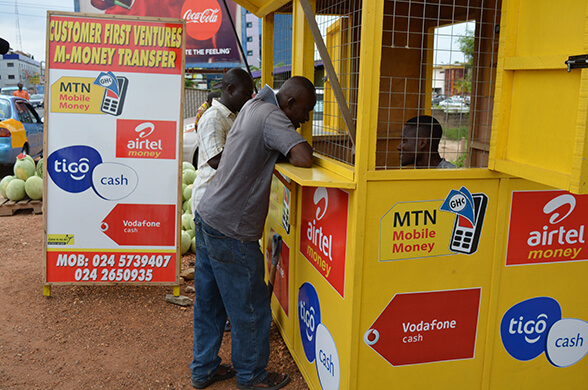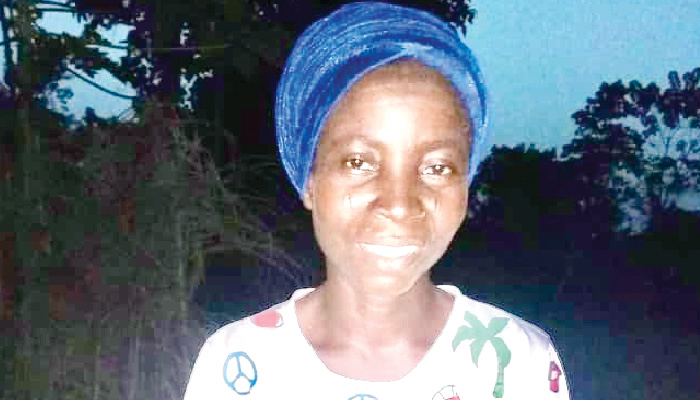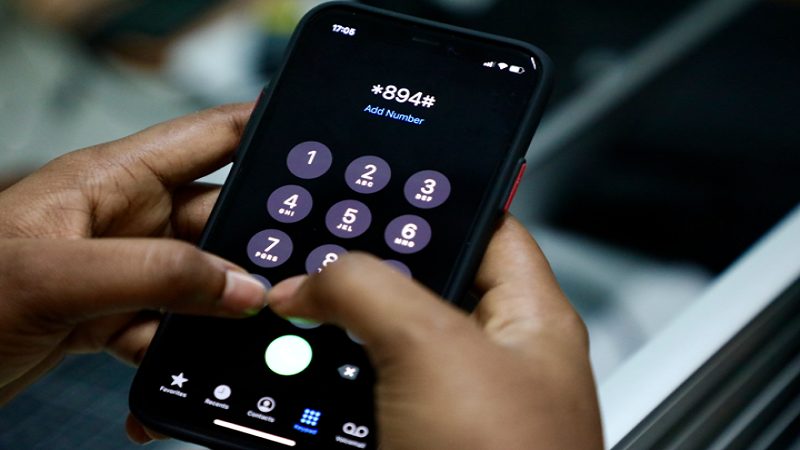For 22-year-old Sandra Akimi from Madina, it started with a phone call—one that plunged her family into panic and cost them dearly.
The voice on the other end claimed her brother had been rushed to the hospital and urgently needed 250 Ghana cedis for treatment. Her mother, gripped by fear, didn’t hesitate to ask Sandra to send the money.
“I wasn’t around when my mom got the call. By the time I came back, she was desperate for me to act quickly,” Sandra recalls. Without question, she transferred the money.
Moments later, the caller was back, requesting another 250 Ghana cedis for “additional treatment.” Sandra grew suspicious. She urged her mother to call her brother directly to confirm the story. To their shock, he was perfectly fine and nowhere near a hospital.
“We lost 250 cedis in minutes,” Sandra laments. “It was an expensive lesson about acting without verifying.”
For 30-year-old George Fiajo from La, the stakes were even higher. His ordeal began when he discovered someone had defrauded him of 6,000 Ghana cedis. Unlike Sandra, George didn’t accept the loss quietly.
“I immediately called MTN to report the fraud, but they told me the fraudster’s account was empty,” George recounts. Despite being advised to file a police report, he refused to stop there. His determination took him on a relentless journey across regions to track down the perpetrator.
Weeks later, George’s persistence paid off. Through collaboration with MTN and local authorities, the fraudster was apprehended, and George recovered his money, albeit in instalments. “It wasn’t easy,” he admits. “Most people don’t have the resources or the resolve to do what I did.”
For many Ghanaians, mobile money is more than just a convenience—it’s a lifeline. From paying utility bills to sending money to relatives in rural areas, it has transformed how people handle finances.
The service has empowered millions, with over 68.2 million registered accounts as of April 2024 and transactions worth billions of cedis processed monthly.
However, beneath this revolution lies a growing threat: fraud. From impersonation scams to data breaches, mobile money fraud has robbed victims of their hard-earned money and shaken public confidence in the system.
How did such vulnerabilities creep into one of Ghana’s most successful financial inclusion tools? And most importantly, what can be done to protect the millions who rely on it?
Fraud in Ghana’s Mobile Money System: A Growing Concern
Sandra and George’s stories illustrate a troubling trend in Ghana’s mobile money ecosystem. Scammers exploit emotional vulnerabilities, systemic loopholes, and weak verification processes to target unsuspecting users.
One alarming tactic involves fraudsters posing as health officials or family members in distress, as in Sandra’s case. Another involves the misuse of fake or stolen identification to register mobile money accounts, as George discovered. Scammers may also send falsified messages that mimic official transaction notifications, tricking users into refunding nonexistent “errors.”
Some fraudsters also register accounts using fake or stolen IDs, making it difficult to trace them.
Manual Data Recording
One glaring issue is the practice of agents manually recording customer details like phone numbers and transaction amounts in notebooks. While agents argue this helps resolve disputes, it poses significant privacy risks.
Speaking to Asaase News Kwame Appiah, a data protection advocate said, “Writing down customer details exposes them to fraudsters who might steal or misuse that information.”
Engineer Dr Ken Ashigbey, CEO of the Ghana Chamber of Telecommunications, Dr Ashigbey also underscored the urgent need to address the issue of data exposure, which remains one of the primary ways fraudsters exploit users.
He emphasized the role of user education in minimizing risks.
“When you go to an agent, don’t loudly announce your transaction details. Mentioning the amount and phone numbers openly allows fraudsters nearby to capture sensitive information and use it to scam you,” he said.
Platform Vulnerabilities
Despite telcos’ efforts to secure platforms, gaps remain. Dr Ashigbey advocated for the adoption of technology that reduces the exposure of user data during transactions. “If agents could use biometric tools or similar technologies that talk directly to the NIA database, it would minimize risks. The system could simply return a positive or negative verification without disclosing sensitive details,” he noted.
He also pointed out that advanced verification systems, such as biometric devices connected to the National Identification Authority (NIA) database, are effective but remain prohibitively expensive for many mobile money agents.
“We need to develop technology that is cheaper and accessible so agents can afford it. For instance, a simple device where users can verify their identity by placing a finger, linked directly to the NIA database, would significantly reduce fraud,” he stated.
He stressed that agents must remain integral to the ecosystem because of the employment opportunities and value-added services they provide, particularly in underserved areas where banks and other financial institutions lack a presence.
“Agents are vital not only for jobs but also for services like mortgages and loans. These agents bridge the gap for customers in remote areas where banks cannot reach them. Removing them from the chain would be detrimental,” Dr. Ashigbey explained.
Risks of Unlicensed Software
A former IT consultant with the Ministry of Communications and Digitalization, Godwin Adarkwah, in an interview with Asaase news, while addressing technological vulnerabilities, warned users about unlicensed applications, particularly Truecaller.
While acknowledging its usefulness in identifying callers, he cautioned that downloading unauthorized versions of such software could expose users to scams.
“Unlicensed Truecaller apps often mislabel numbers as spam and can add users to unauthorized groups. Always ensure the apps you install are legitimate and carefully monitor the contacts saved on your device,” he advised.
Ghana Card: The Way Forward
Godwin Adarkwah, in an interview with Asaase News, while speaking on strategies to curb fraud, highlighted the significant role of the Ghana Card in improving identity verification and reducing fraudulent activities.
“The Ghana Card has played a crucial role in reducing mobile money fraud,” Adarkwah stated. “With its integration, when a transaction is made, the full details of the person appear, making it harder for fraudsters to hide their identities.”
He encouraged Ghanaians to ensure their cards were properly registered and used for financial transactions.
“With the Ghana Card, fraudulent impersonation has become significantly harder. If every individual ensures their card is registered and linked to their financial accounts, fraud can be curtailed even further,” he said.
Restoring Trust in the System
Mobile money fraud erodes trust in a system that has revolutionized financial transactions for millions of Ghanaians. Victims like Sandra and George highlight the emotional, financial, and logistical toll of these scams. Yet their stories also underscore the resilience of Ghanaian consumers and the urgent need for systemic reforms.
By addressing the vulnerabilities in the mobile money ecosystem, stakeholders can restore confidence and ensure that this powerful tool for financial inclusion remains secure for all users.
As Sandra puts it, “It’s a painful experience, but I hope sharing my story helps others avoid the same mistake.”
For George, the lesson is clear: “Perseverance pays off, but it shouldn’t have to be this hard to get justice.”
This report is produced under the DPI Africa Journalism Fellowship Programme of the Media Foundation for West Africa and Co-Develop.





